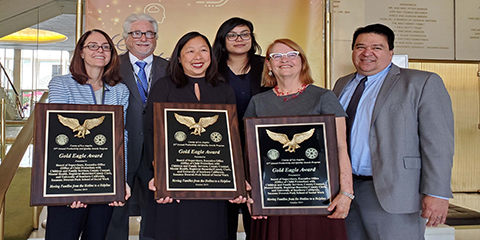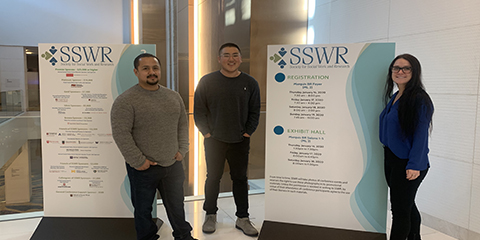News Archive
Research
-

USC researchers are applying tools from the study of epigenetics and social work to discern whether young adults who were abused or neglected as children have more mental health symptoms during the COVID-19 pandemic than those who were not. The result could increase understanding of who is at greater risk in the context of the pandemic and who may benefit most from enhanced and targeted interventions.
-

One suicide leaves a heartbreaking trail, notably affecting an estimated 135 surviving people. The thousands of suicide deaths that occur each year among U.S. military veterans are a cause for national mourning.
-

The USC Center for Lesbian, Gay, Bisexual, Transgender, Queer+ (LGBTQ+) Health Equity (CLHE) at the USC Suzanne Dworak-Peck School of Social Work has offices on USC’s University Park campus, but like everything during the COVID-19 pandemic, much of their work is done virtually these days.
-

The link between systemic racism and homelessness is clear, not just to researchers and officials who have acknowledged the problem, but also to anyone walking or driving along Los Angeles’s sidewalks or parks.
-

Making health care more inclusive and accepting of lesbian, gay, bisexual, transgender and queer/questioning patients means that seasoned providers and new clinical staff have opportunities to work together and bring barriers and solutions to the forefront.
-

A February 2020 research summit on moral injury, hosted by the Military and Veterans Programs (MVP) at the USC Suzanne Dworak-Peck School of Social Work, expanded understanding of this subject, as scientists discussed its applicability for treatment of trauma both inside and outside a military context.
-

One virtue of big data is that it can unlock patterns that bring important insights about helping vulnerable children and families. Numbers, it is said, do not lie.
-

Three USC military-track and military-connected students had unique opportunities to network and learn more about their chosen field when they attended the annual conference for the Society for Social Work and Research, held this January in Washington, D.C.
-

Black History Month is a celebration of the accomplishments of African Americans, and a time for recognizing the central role that African Americans played in U.S. history.
-

Veteran suicide rates continue to tick upward, despite the federal government spending vast sums of money and investing considerable time and resources to grapple with the issue.